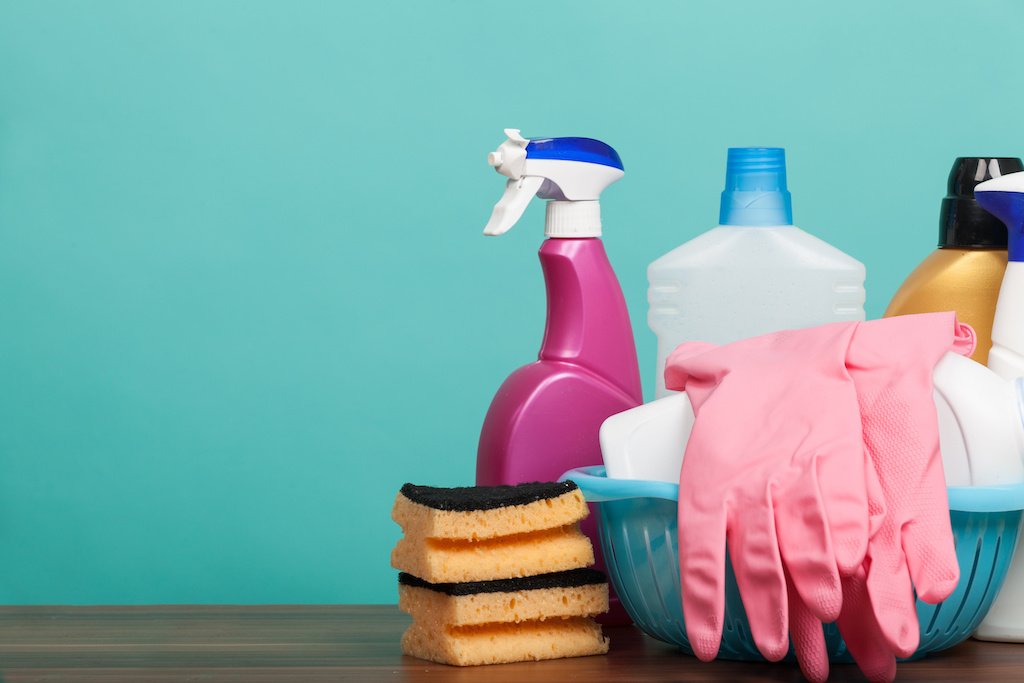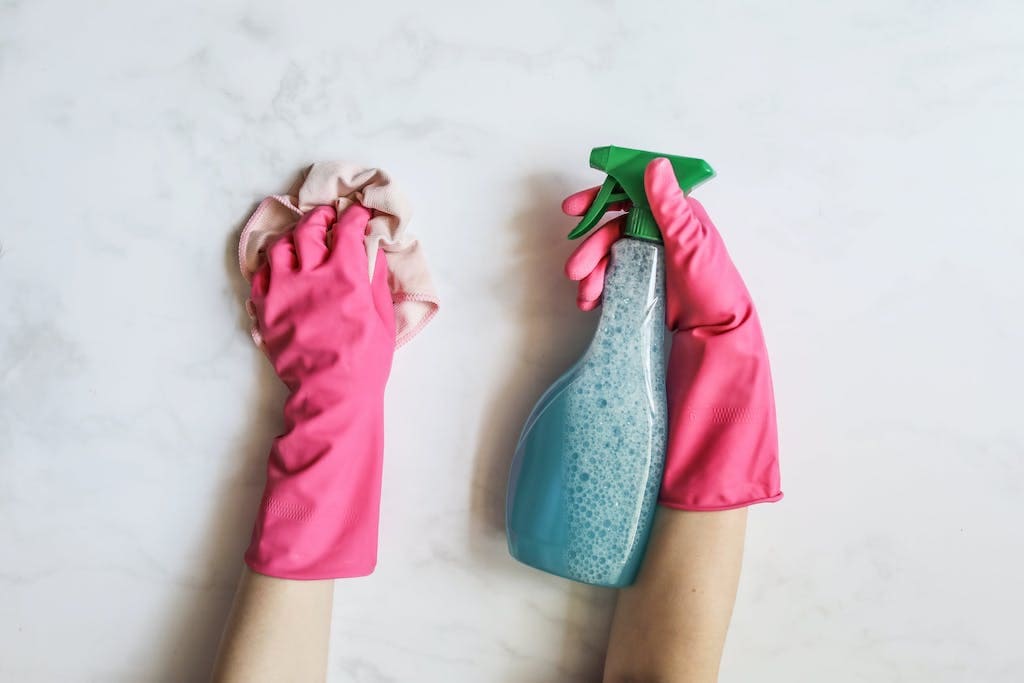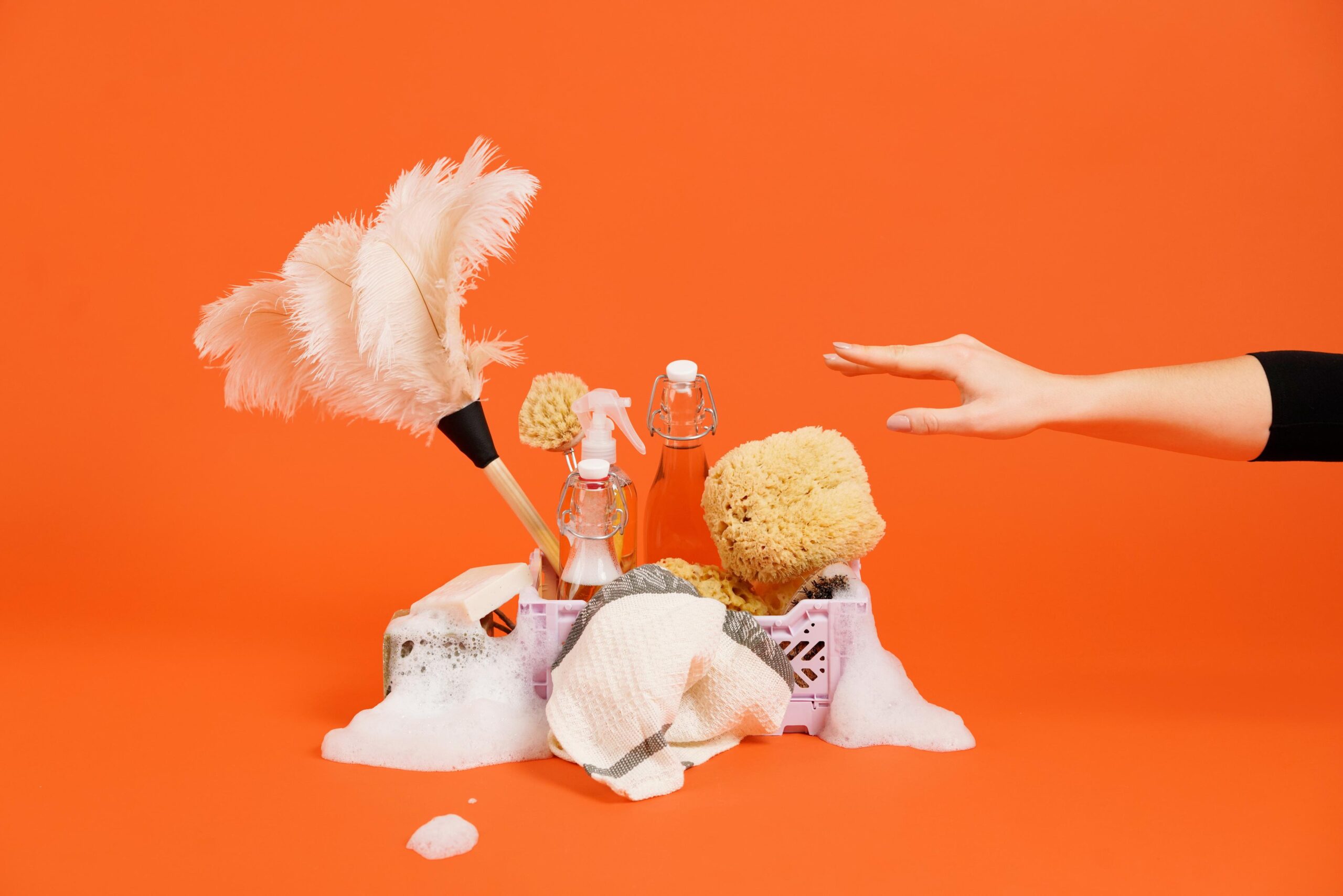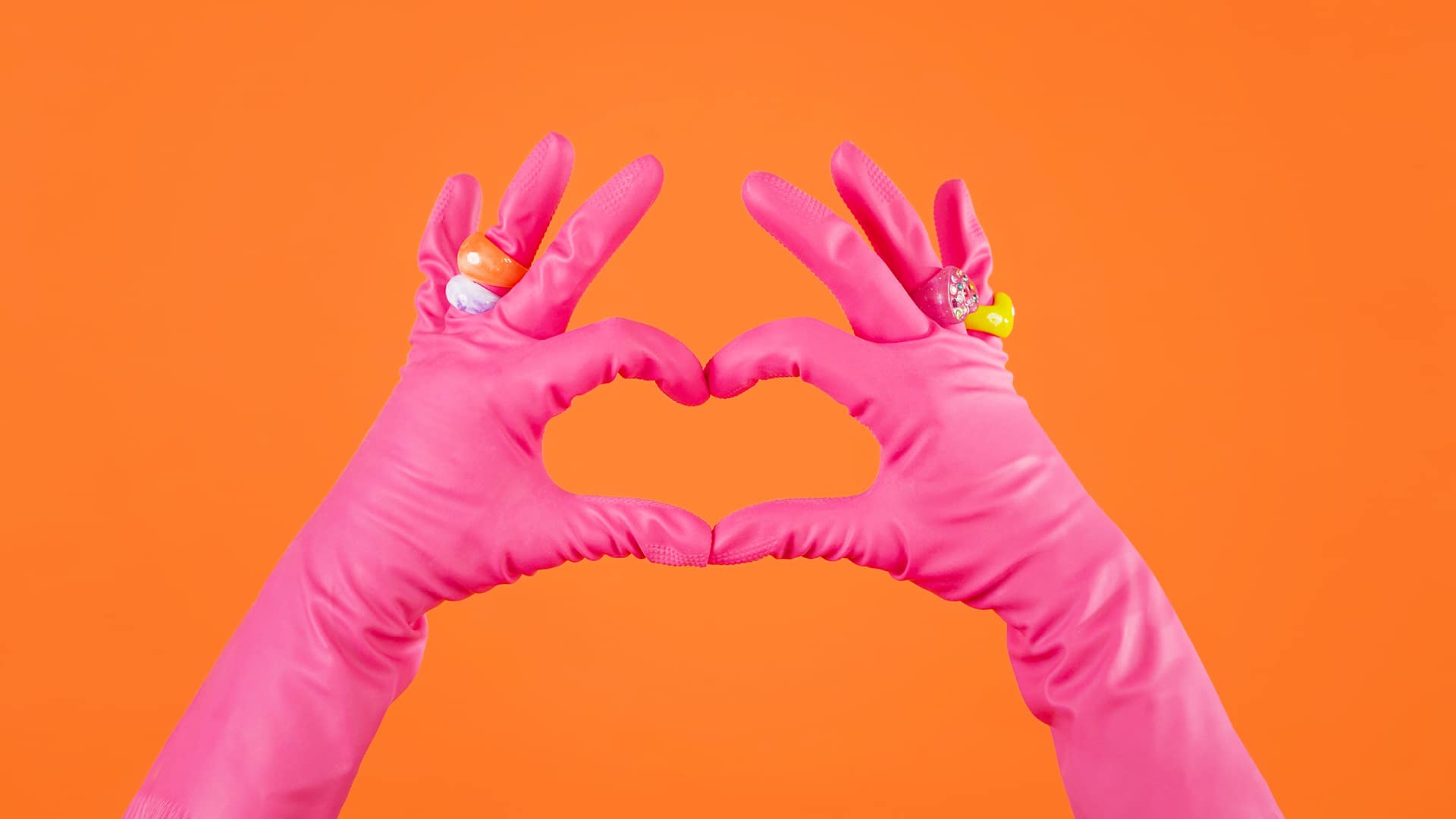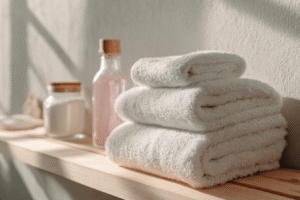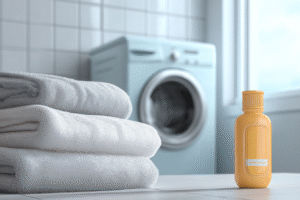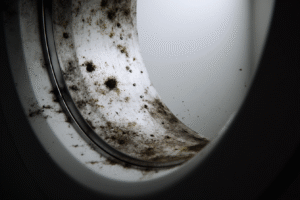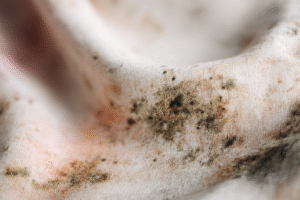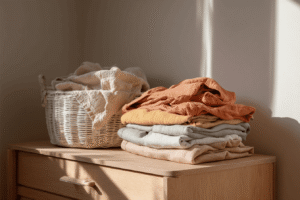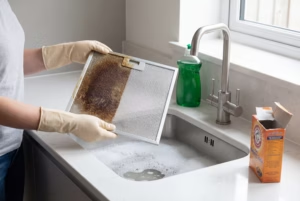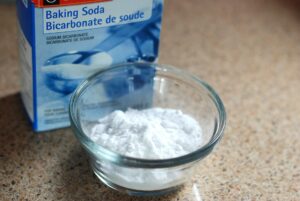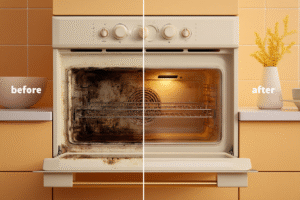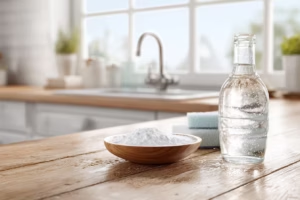Résumer cet article avec :
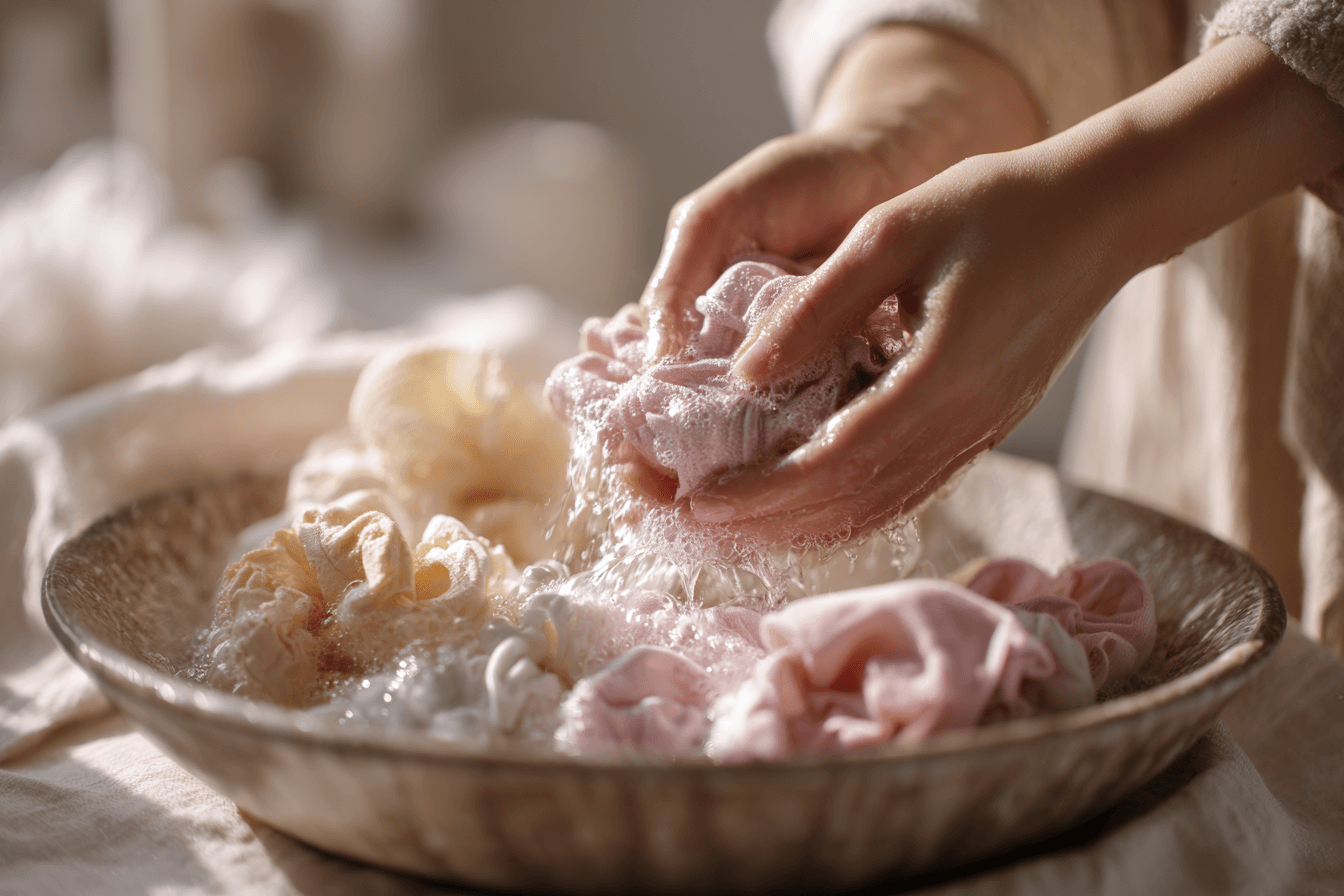
Why is washing baby clothes essential in the first place?
Did you know that you should be washing newborn clothes before putting them on your baby? Maybe you’re already aware that you should be washing your baby clothes, but don’t know the exact reason why. The NHS recommends washing newborn clothes before you dress your baby in them because they can pick up bacteria from your skin. This is particularly important for clothes that will be in direct contact with your baby’s skin, such as bodysuits and sleepsuits. Not only can bacteria be transferred from your skin to your baby’s clothes, but clothing can also become contaminated during the manufacturing process. This is why it’s so important to give your baby’s clothes a good wash before they wear them.How often should you wash baby clothes?
This will vary depending on how often your baby wears each item of clothing, but as a general rule you should incorporate this kind of task into your home cleaning schedule to make sure you stay on top of things when life gets hectic. For example, items that are worn frequently, such as bodysuits, will need to be washed more often than items that are only worn occasionally. As a general rule of thumb, you should aim to wash baby clothes:- At least once after buying (before the first wear)
- At least once a week if they’re only worn occasionally
- Every few days if they’re worn frequently
- After every wear if they’re soiled or wet
Best laundry powder/soap for baby clothing
When it comes to washing your baby’s cloth, choose a detergent specially formulated for babies or one that’s fragrance-free and hypoallergenic. These are less likely to cause irritation. In the UK, top baby-friendly detergents include:- Fairy Non-Bio
- Ecover Zero
- Persil Non-Bio
What Temperature Should You Wash Newborn Clothes At?
When it come to doing laundry for your baby, always start by checking the care label on each garment. Some delicate items might need cooler washes, while others can handle warmer settings. In general, baby clothes can be washed at 30°C or 40°C. These temperatures are gentle enough to protect soft fabrics, which is especially important for cotton or organic materials often used in newborn clothing. Washing at 30°C is also better for the planet. It saves energy and still gives a hygienic clean—especially when you’re using a modern, baby-safe detergent. For heavily soiled items, like bibs, cloth nappies or anything with spit-up or poo stains, consider a 60°C wash. This higher temperature helps to kill bacteria and remove tougher stains. Just make sure the item can handle it, especially if it includes elastics or prints. If you’re unsure, a good compromise is to wash day-to-day clothes at 30°C, and only switch to hotter washes when absolutely necessary. Tip: Use a baby laundry bag for smaller or delicate items to protect them from damage, no matter the wash temperature.How to wash baby clothes – Step-by-step guide
Washing newborn clothes might feel daunting at first—but once you’ve got a routine, it’s simple and reassuring. With the right steps, you’ll keep your baby’s clothes soft, clean, and safe for delicate skin. Here’s a straightforward step-by-step:- Sort the laundry. Sorting clothes by colour (whites, lights, and darks) and by fabric type. This helps prevent colour bleeding and protects delicate materials like organic cotton or wool blends.
- Use a gentle, baby-safe detergent. Opt for a non-bio, fragrance-free formula that’s kind to sensitive skin. Avoid fabric softeners at this stage, as they can irritate or reduce absorbency—especially for items like muslins and baby towels.
- Select a delicate wash cycle. Most washing machines have a ‘hand wash’, ‘delicate’, or ‘baby care’ setting. These cycles are shorter and use gentler spin speeds to prevent wear and tear.
- Wash at 30°C or 40°C. This is warm enough to clean everyday items while being gentle on both fabric and skin. For extra hygiene on soiled clothes, you can go up to 60°C—just double-check the care label first.
- Run an extra rinse cycle. This helps remove any lingering detergent, reducing the risk of irritation for newborns with very sensitive skin.
- Air dry whenever possible. Tumble dryers are fine on a low heat setting, but air drying helps preserve the softness and shape of baby clothes for longer.
5 Top Tips when washing baby newborn clothes
Now that we’ve answered the question of why washing baby clothes is so important and how to wash baby clothes effectively, let’s take a look at our best tips to remember when washing your little one’s clothes:1. Check the care labels
Before washing any of your baby’s clothes, it’s important to check the care labels. These labels will tell you what fabrics the clothing is made from and what temperature you should wash them at. This is important because some fabrics are more delicate than others and need to be washed at a lower temperature to prevent damage.2. Pre-treat any stains
If any of your baby’s clothes are stained, it’s important to treat the stains before washing them. This will help to ensure that the stains come out in the wash and that the clothing doesn’t become damaged.3. Use a gentle detergent
When washing your baby’s clothes, it’s important to use a gentle detergent that is designed specifically for babies. These products are formulated to be gentle on sensitive skin and will not irritate your baby’s skin like some regular detergents can.4. Wash in separate loads
You should always wash your baby’s clothes in separate loads to ensure that they come out clean and free of any contaminants. Washing baby clothes in the same load as your regular laundry can increase the risk of cross-contamination.5. Hang dry whenever possible
Hanging your baby’s clothes up to dry is the best way to protect them from damage. If you need to use a dryer, make sure to select a low heat setting to prevent the clothes from shrinking or becoming damaged. By following these tips, you can be sure that your baby’s clothes are being washed effectively and that they’re being protected from damage.How Do You Wash Newborn Clothes for the First Time?
That first wash is more important than it looks. Even if the clothes are brand new and look spotless, they could carry chemical residues, dust, or allergens picked up during manufacturing, shipping, or while on display in shops. Washing baby clothes before the first wear helps remove these irritants and ensures that everything that touches your baby’s skin is as clean and gentle as possible. Here’s how to do it right:- Sort and separate baby clothes from the rest of the laundry. During those early weeks, it’s best to wash newborn items on their own to avoid exposure to harsher detergents, strong fragrances, or lint from adult fabrics.
- Use a gentle detergent that’s non-bio, fragrance-free, and specifically formulated for sensitive skin. This reduces the risk of rashes or skin irritation.
- Choose a delicate cycle on your washing machine and wash at 30°C or 40°C depending on the care label. These lower temperatures are effective for lightly soiled clothes and help protect soft fabrics.
- Avoid fabric softener for now. Although it might make clothes feel extra soft, many contain fragrances or additives that aren’t ideal for newborns.
- Air dry where possible, as it’s gentler on fabrics and avoids the wear and tear of tumble drying.
Is it okay to wash newborn clothes by hand?
Absolutely! Hand washing clothes, especially newborn clothes is not only okay—it’s often the gentlest option for your little one’s delicate skin. Many parents find it gives them complete control over the washing process, especially during those precious first few months.Why choose hand washing?
Hand washing eliminates the risk of harsh agitation from washing machines and ensures you’re using exactly the right amount of gentle detergent. It’s particularly brilliant for delicate items like soft toys, special outfits, or anything with intricate details that might get damaged in a machine. The important thing to remember? Your technique matters just as much as your choice of detergent.Here’s our step-by-step guide to hand washing success:
- Fill a clean basin with lukewarm water (not hot—this can set stains and damage delicate fibres)
- Add a small amount of baby-safe, non-bio detergent—think gentle washing liquid specifically designed for newborns
- Let items soak for 10-15 minutes to allow the detergent to work on any stains or germs
- Gently agitate the water with your hands, then softly rub any stained areas
- Rinse thoroughly in clean lukewarm water until no soap residue remains
- Gently squeeze (don’t wring!) to remove excess water
- Air dry in natural sunlight when possible—the sun acts as a natural disinfectant and helps eliminate bacteria
Tackling Stains and Germs
Let’s be honest—baby mess is inevitable. From milk spills to nappy leaks and messy food stains, it all comes with the newborn territory. But don’t worry, with a few smart tricks, you can keep your baby’s clothes looking (and smelling) fresh.How to Treat Common Baby Stains
Acting quickly makes all the difference. The sooner you treat a stain, the easier it is to remove. Here’s what to do:- Soak stained items in cold or cool water for 30 minutes before washing. This helps loosen dried-on milk, spit-up, or food stains.
- Use a baby-safe stain remover or apply a small amount of bicarbonate of soda directly to the mark. Gently rub it in with your fingers or a soft brush.
- For stubborn stains, you can make a natural paste using bicarbonate of soda and water, then leave it to sit for 10–15 minutes before rinsing.
White Vinegar: A Natural Hero
White vinegar is a great natural option that’s gentle yet effective. Add half a cup to the rinse cycle to:- Neutralise odours (perfect for sick or nappy leaks)
- Soften baby clothes without using fabric softener
- Brighten whites naturally
Killing Germs Safely
Some items need more than just a gentle clean—especially when it comes to germs and bacteria. For anything heavily soiled, like:- Reusable nappies
- Bibs with food or milk residue
- Sick-covered muslins or vests
Special Considerations
Not everything in your baby’s laundry pile is a sleepsuit or muslin. Some items need a little extra care to keep them safe, clean and in good condition.Reusable Nappies
Reusable nappies are brilliant for the environment—and your wallet—but they do need a specific wash routine:- Always rinse nappies first to remove any residue. A cold rinse or quick pre-wash cycle is ideal.
- Wash nappies separately from other laundry to avoid contamination.
- Use a non-bio detergent, and avoid fabric softeners, as they reduce absorbency.
- A 60°C wash is usually recommended to kill bacteria and thoroughly clean each layer.
- Make sure to follow the brand’s instructions, as materials can vary (some have waterproof linings or inserts that need gentle handling).
Soft Toys
Those first cuddly toys can be a source of comfort—but they also attract dust, dribble, and germs. To wash them safely:- Choose a gentle, cold or 30°C wash, especially for toys with delicate stitching or fabrics.
- Place soft toys in a laundry bag or pillowcase to protect them during the wash.
- Use a baby-safe detergent and skip the fabric softener.
- Let toys air dry naturally. Avoid tumble drying unless the label says it’s safe.
Bedding
Your baby’s bedding—like crib sheets, blankets, and sleeping bags—should be washed just as gently as their clothes:- Use a non-bio detergent to prevent irritation.
- Stick to 30°C or 40°C, unless the care label advises otherwise.
- Wash bedding weekly, or more often if there’s been a leak or spit-up.
How Often Should You Wash Newborn Clothes? Your checklist for infant clothes
There’s no hard rule, but most parents wash baby clothes every 2–3 days. Bibs and vests may need daily washes, especially after feeds. Muslins, too! Blankets, sleeping bags and towels can go longer—once a week is often enough, unless there’s a mess.FAQ about washing baby clothes
Can you tumble dry baby clothes?
+Yes, you can tumble dry most baby clothes! Here’s the thing—always check the care label first. Most cotton baby clothes handle tumble drying just fine.
Our top tips:
- Use a low heat or delicate setting
- Don’t overload the dryer—clothes need space to tumble freely
- Remove items while they’re still slightly damp to prevent over-drying
- Skip the dryer sheets (they can irritate sensitive skin)
Avoid tumble drying: Wool items, anything with delicate embellishments, or clothes that specifically say “do not tumble dry” on the label.
Can I use regular detergent on baby clothes?
+No, you should not use regular detergent on baby clothes. These products are formulated to be gentle on sensitive skin and will not irritate your baby’s skin like some regular detergents can.
Do I need to wash baby clothes in a separate load?
+Yes, you should always wash your baby’s clothes in separate loads to ensure that they come out clean and free of any contaminants. Washing baby clothes in the same load as your regular laundry can increase the risk of cross-contamination.
What’s the best way to protect baby clothes while washing them?
+Hanging your baby’s clothes up to dry is the best way to protect them from damage. If you need to use a dryer, make sure to select a low heat setting to prevent the clothes from shrinking.
Why is washing baby’s clothes important?
+Washing baby clothes is important because it helps to keep your little one clean and healthy. Baby clothes can often be stained with spit-up, diapers leaks, and other messes, so it’s important to wash them regularly. Washing baby clothes also removes any bacteria or contaminants that could cause illness.
Is 30 weeks too early to wash baby clothes?
+No, 30 weeks is not too early to wash baby clothes. In fact, it’s actually a good idea to wash them before your baby arrives so that you don’t have to worry about it after they’re born.
What is the best way to store washed baby clothes?
+The best way to store washed baby clothes is in a clean, dry place. Baby clothes can be stored in a dresser drawer or in a storage bin. If you’re using a storage bin, make sure to label it so that you know what’s inside.
Washing your baby’s clothes is more than just a chore. It’s a chance to slow down, prepare, and feel connected to what’s coming. At Wecasa, we’re here to make life easier—for you and your growing family.

 ChatGPT
ChatGPT
 Mistral
Mistral
 Claude
Claude
 Perplexity
Perplexity
